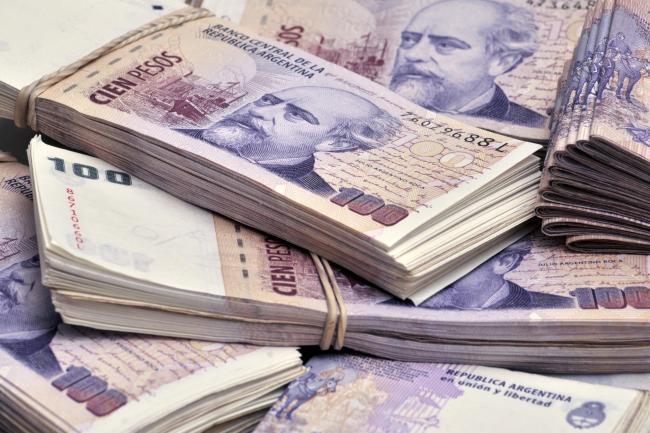(Bloomberg) -- Argentina’s consumer prices rose more than expected in March for the third consecutive month as central bank attempts to stabilize the currency fail to slow inflation.
Consumer prices rose 4.7 percent compared to February, the largest monthly acceleration since October, according to government data published Tuesday. The median estimate of analysts surveyed by Bloomberg predicted a monthly rate of 4.05 percent. Inflation increased 54.7 percent in March from a year ago. Persistently high prices, spending cuts and last year’s currency crisis elevated price gains in recent months.
President Mauricio Macri will announce new measures to rein in rising prices Wednesday, which will likely include some type of price controls on basic food items, according to multiple local press reports. Food prices have increased faster than overall inflation in recent months as producers and distributors adjust prices to recoup losses from last year’s peso plunge.
It’s the government’s latest effort to try and show Argentines it’s doing whatever it can do assist them through the second recession of Macri’s presidency. To comply with a record $56 billion bailout from the International Monetary Fund agreed to last year, Macri is cutting spending on subsidies for utilities and public transportation. That’s caused prices in those two categories to jump significantly so far in 2019. It’s also triggered another decline in Macri’s approval rating. He faces re-election Oct. 27.
The peso tumbled 1.8 percent Tuesday ahead of the numbers, the most among peers, and is likely to resume that decline tomorrow. Yields on Argentine bonds due 2024 rose 12 basis points following the inflation announcement.
What Bloomberg’s Economists Say
“With observed and expected inflation both rising, the BCRA is left in an uncomfortable situation. In our view, there are not many options left for the monetary authority, which has already announced even stricter targets for monetary base last month.”--Adriana Dupita, economistClick here to view the piece.
Here’s what analysts are saying about the data:
- Alejandro Cuadrado, senior currency strategist at BBVA (MC:BBVA)
- Inflation damages Macri’s re-election bid
- “Pressure is on for the authorities to still try to tame the weakening trend so as not to feed further inflation”
- “The new inflation highs put USDARS on an upward, longer-term trend”
- Alberto Ramos, head of Latin American economics at Goldman Sachs (NYSE:GS)
- Argentine March inflation data show price pressures remain highly generalized and is “very negative and worrisome”
- Ramos says only one of the 12 main CPI groups had inflation below 3% in March, showing inflationary pressures are widespread
- Ramos still expects inflation to moderate, but says it will likely peak at 58% in May before easing to 40% by the end of the year
(Updates with analyst comment.)
